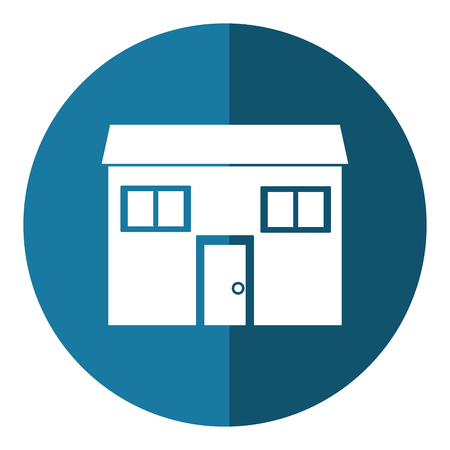1. Introduction to the Housing Market’s Role
When people talk about the American economy, the housing market often comes up as a key topic. That’s because buying a home isn’t just a personal milestone—it’s also a major part of what keeps the U.S. economy moving. For many Americans, owning a home is seen as part of the “American Dream,” symbolizing stability, success, and long-term financial security.
The Unique Place of Housing in American Life
Homes are more than just places to live. They’re investments, sources of wealth, and often one of the biggest purchases most families ever make. This gives the housing market a special spot in both American culture and family finances. When you drive through neighborhoods or see new houses being built, it’s not just about construction—it’s a sign that people feel confident about their future.
Why the Housing Market Matters Financially
The impact of the housing market reaches far beyond homeowners themselves. It affects jobs, consumer spending, and even how much money local governments have for schools and roads. Here’s a quick look at how different parts of the economy connect with housing:
| Economic Area | Connection to Housing Market |
|---|---|
| Jobs | Construction, real estate agents, mortgage lenders, furniture stores all rely on housing activity |
| Consumer Spending | People often buy appliances, décor, and services when they move or remodel |
| Government Revenue | Property taxes from homes fund local services like schools and fire departments |
| Wealth Building | Home equity is a major way families build long-term financial security in America |
A Central Pillar in the Economy
Because of all these connections, changes in the housing market can ripple through many parts of daily life and business across the country. When the housing market is strong, it often signals good times for other industries too. In this way, understanding what happens in real estate helps explain larger trends in jobs, spending, and economic growth across America.
2. Housing as a Driver of Consumer Spending
Home Purchases Spark a Wave of Spending
When someone buys a home in the U.S., it’s not just about getting the keys and moving in. Home purchases set off a chain reaction of spending that ripples through many parts of the economy. From buying new furniture to hiring movers, homeowners often find themselves making lots of purchases right after closing on a house.
Impact on Retail, Home Improvement, and Services
The excitement of homeownership typically leads people to shop for everything from couches to kitchen appliances. Big-box retailers like Home Depot and Lowe’s see sales jump when the housing market is strong. It’s not just about DIY projects—service providers such as painters, landscapers, and cleaning companies also benefit.
Where Do New Homeowners Spend?
| Category | Examples |
|---|---|
| Retail | Furniture, electronics, décor |
| Home Improvement | Lumber, paint, tools, fixtures |
| Services | Moving companies, cleaners, repair services |
Multiplier Effect on the Economy
This surge in consumer demand doesn’t stop with the first round of purchases. Each dollar spent can lead to even more economic activity as businesses hire more workers or buy additional supplies. In turn, these workers and suppliers have more money to spend themselves—fueling growth across local communities.

3. Impact on Employment and Job Creation
How Housing Fuels Jobs Across the Economy
The housing market is a powerful engine for job creation in the United States. When new homes are built or existing ones are bought and sold, it triggers a chain reaction of employment opportunities. From construction crews to mortgage lenders, a wide range of industries benefit from activity in the housing market.
Key Sectors Impacted by the Housing Market
| Sector | Examples of Jobs Created | Ripple Effects |
|---|---|---|
| Construction | Builders, electricians, plumbers, roofers, carpenters | Increased demand for building materials and local suppliers |
| Real Estate | Real estate agents, appraisers, property managers | Spending at local businesses as agents and clients celebrate transactions |
| Mortgage Lending | Loan officers, underwriters, processors, bank staff | Banks invest more in technology and customer service roles |
| Home Improvement & Retail | Hardware store clerks, landscapers, interior designers | Boom in home goods stores and services after purchases or renovations |
The Multiplier Effect: How Jobs Extend Beyond Housing
The impact doesn’t stop with those directly involved in real estate or construction. When someone buys a home, they often hire movers, buy furniture, and make improvements—creating even more jobs. This “multiplier effect” means that strong housing markets can help lower unemployment rates and support overall economic growth.
A Snapshot: Numbers That Matter
According to data from the National Association of Home Builders, building 1,000 average single-family homes creates nearly 3,000 full-time jobs across various sectors. The ripple effects reach restaurants where workers eat lunch, local shops that supply materials, and even government agencies processing permits.
4. Wealth Effects and the American Dream
How Home Values Shape Household Wealth
For many Americans, owning a home is much more than just having a place to live—it’s a big part of building wealth. When home values go up, homeowners see an increase in their net worth because their biggest asset is now worth more. This extra value can be used for things like home improvements, paying for college, or starting a business. On the other hand, when home prices fall, people may feel less wealthy and may cut back on spending.
The Impact on Consumer Confidence
Changes in the housing market often affect how confident people feel about their finances. If home prices are rising, homeowners tend to feel more secure about their money and are more likely to spend on goods and services. But if prices drop, they might worry about their financial future and become cautious with their spending. This change in consumer confidence can have ripple effects across the entire economy.
Wealth Effect on Spending: A Simple Breakdown
| Home Value Trend | Household Feeling | Typical Response | Impact on Economy |
|---|---|---|---|
| Rising Home Prices | More Wealthy | Spend More | Boosts Economy |
| Falling Home Prices | Less Wealthy | Spend Less | Slows Economy |
The Broader Perception of Financial Well-being
In the United States, the idea of the “American Dream” is closely tied to homeownership. When people see neighbors buying homes or renovating them, it builds a sense of community success and optimism. However, if many homes lose value or foreclosures rise, it can hurt this sense of well-being—not just for homeowners but for entire neighborhoods. This broader perception affects how people plan for the future, save money, and invest in their communities.
5. Housing, Interest Rates, and Credit Availability
How the Fed Impacts Your Home Buying Power
When it comes to the housing market, three key players shape what you can afford: the Federal Reserve (often just called “the Fed”), mortgage rates, and how easy it is to get a loan. Let’s break down how these pieces work together and why they matter for everyday Americans.
The Federal Reserve and Mortgage Rates
The Fed doesn’t set mortgage rates directly. Instead, it controls something called the federal funds rate. When the Fed raises this rate, borrowing money becomes more expensive for banks—and eventually for regular folks too. This often leads to higher mortgage rates.
| When the Fed… | Mortgage Rates Usually… | What It Means for Buyers |
|---|---|---|
| Raises rates | Go up | Higher monthly payments, harder to qualify |
| Lowers rates | Go down | Lower monthly payments, easier to qualify |
Credit Availability: Can You Get Approved?
Even if interest rates are low, you still need to get approved for a mortgage. Banks look at your credit score, your income, your debts, and sometimes even your job history. If banks tighten their lending standards (maybe because theyre worried about the economy), it gets tougher for people to get loans—even if rates are attractive.
Main Factors That Affect Credit Availability
- Credit Score: Higher scores open more doors.
- Down Payment: Bigger down payments can make lenders more comfortable.
- Debt-to-Income Ratio: Lenders want to see that you aren’t stretched too thin each month.
- Earnings Stability: A steady paycheck helps your case.
The Domino Effect on the Economy
If mortgage rates climb or loans become harder to get, fewer people buy homes. That means less demand for construction workers, home appliances, furniture, and so on. On the other hand, when rates drop and loans are easier to secure, home sales usually jump—giving the whole economy a boost as people spend on moving expenses, renovations, and new purchases.
The relationship between housing, the Fed’s decisions, mortgage rates, and credit access doesn’t just influence homebuyers—it ripples out to affect jobs, consumer spending, and even local government budgets through property taxes. Understanding these connections helps explain why housing is such a big deal in America’s economic story.
6. Broader Economic Ripple Effects
How Changes in the Housing Market Impact the Economy
The housing market is often seen as a key indicator of the overall health of the U.S. economy. When home prices rise or fall, these changes can create ripple effects that influence everything from job creation to consumer spending and even government policy.
Triggering Economic Cycles
When the housing market is booming, more homes are being built and sold. This activity creates jobs for construction workers, real estate agents, lenders, and many others. At the same time, homeowners tend to feel wealthier when their property values go up, so they may spend more on goods and services, which further boosts economic growth.
Examples of Housing-Driven Economic Ripples
| Housing Market Change | Broader Economic Effect |
|---|---|
| Rising Home Prices | Increased consumer confidence and spending |
| New Home Construction | More jobs in construction and related industries |
| Falling Home Values | Reduced household wealth and lower spending |
| High Mortgage Rates | Slower home sales and less demand for home-related goods |
| Foreclosure Spikes | Banks tighten lending; potential credit crunch across sectors |
The Link to Recessions and Recoveries
Historically, major shifts in the housing market have been linked to economic slowdowns or recessions. For example, the 2008 financial crisis started with a collapse in housing prices and mortgage-backed securities. Conversely, when the housing market recovers—through lower interest rates or increased buyer demand—it can help pull the broader economy out of a slump by stimulating construction, boosting retail sales (furniture, appliances), and raising tax revenues for local governments.
A Cycle of Influence
The relationship between housing and the wider economy works both ways. While a healthy housing market can drive growth, economic downturns can also hit housing hard—leading to fewer home sales, declining values, and reduced building activity. Because so many Americans have their wealth tied up in their homes, any major changes in this market often affect how confident people feel about spending or investing elsewhere.


